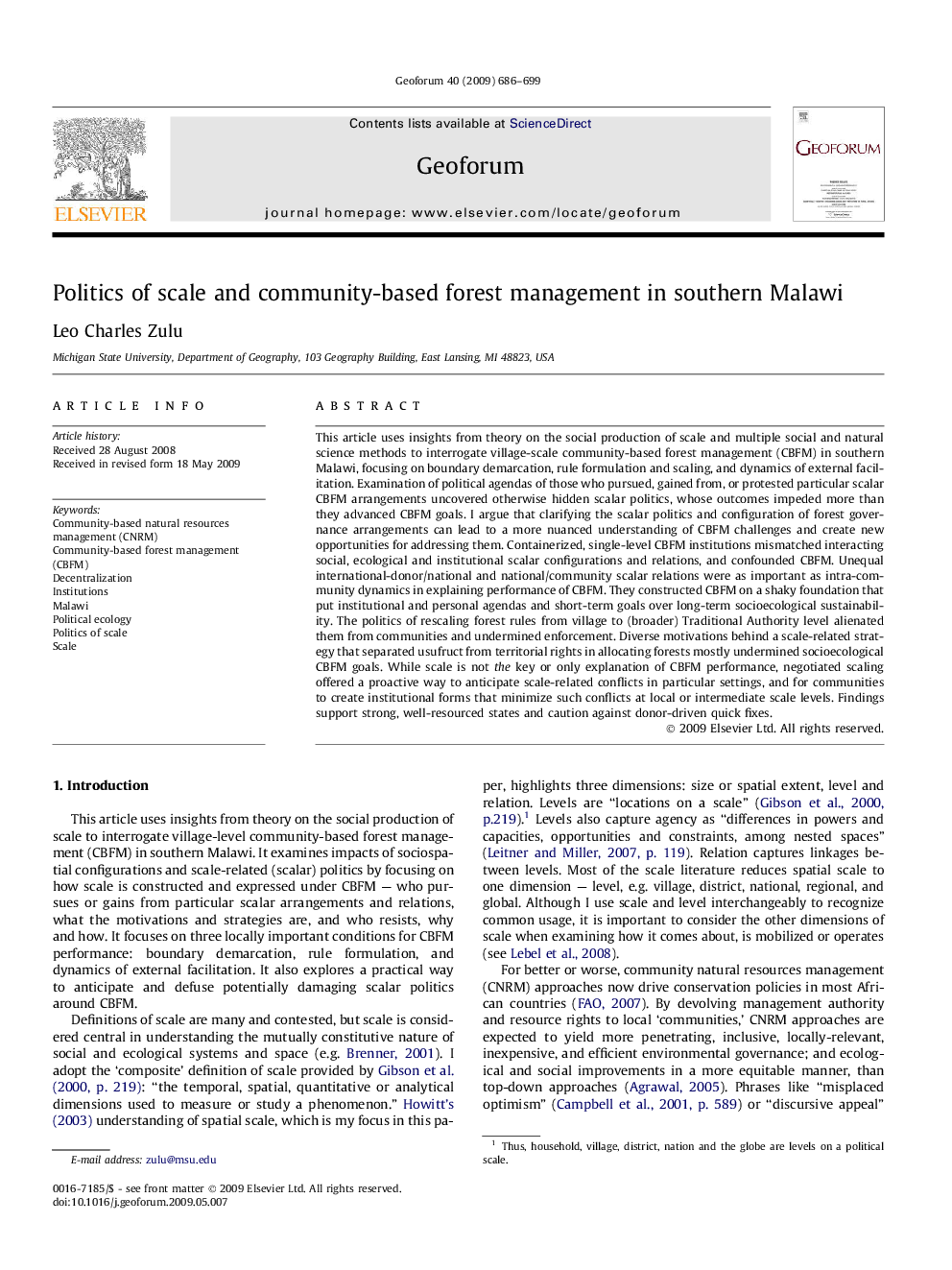| Article ID | Journal | Published Year | Pages | File Type |
|---|---|---|---|---|
| 5074949 | Geoforum | 2009 | 14 Pages |
This article uses insights from theory on the social production of scale and multiple social and natural science methods to interrogate village-scale community-based forest management (CBFM) in southern Malawi, focusing on boundary demarcation, rule formulation and scaling, and dynamics of external facilitation. Examination of political agendas of those who pursued, gained from, or protested particular scalar CBFM arrangements uncovered otherwise hidden scalar politics, whose outcomes impeded more than they advanced CBFM goals. I argue that clarifying the scalar politics and configuration of forest governance arrangements can lead to a more nuanced understanding of CBFM challenges and create new opportunities for addressing them. Containerized, single-level CBFM institutions mismatched interacting social, ecological and institutional scalar configurations and relations, and confounded CBFM. Unequal international-donor/national and national/community scalar relations were as important as intra-community dynamics in explaining performance of CBFM. They constructed CBFM on a shaky foundation that put institutional and personal agendas and short-term goals over long-term socioecological sustainability. The politics of rescaling forest rules from village to (broader) Traditional Authority level alienated them from communities and undermined enforcement. Diverse motivations behind a scale-related strategy that separated usufruct from territorial rights in allocating forests mostly undermined socioecological CBFM goals. While scale is not the key or only explanation of CBFM performance, negotiated scaling offered a proactive way to anticipate scale-related conflicts in particular settings, and for communities to create institutional forms that minimize such conflicts at local or intermediate scale levels. Findings support strong, well-resourced states and caution against donor-driven quick fixes.
